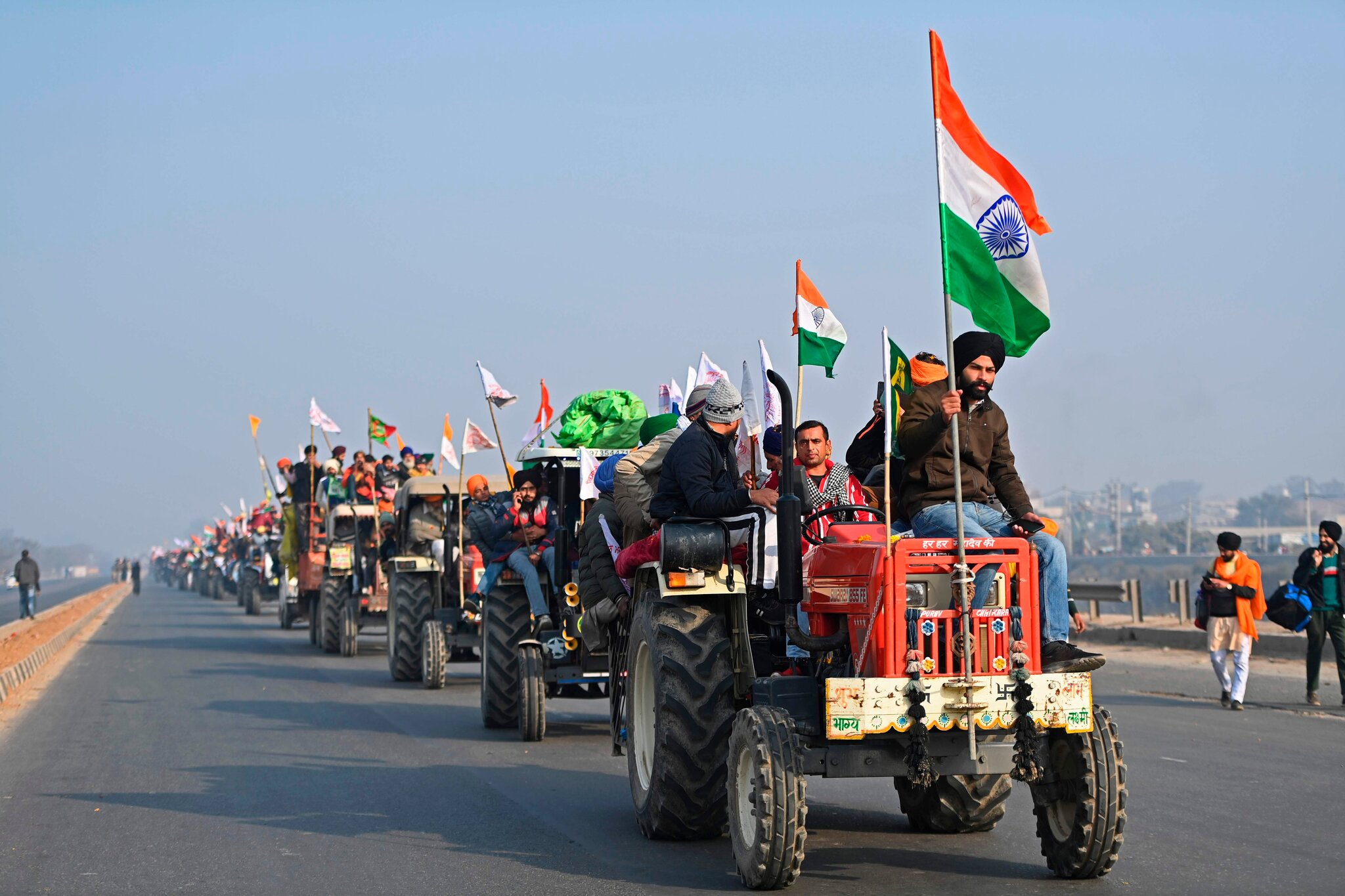
India, acclaimed as the world’s biggest democracy, is witnessing a concerning deterioration in its democratic principles under Modi/ BJP, who have been in power for almost a decade now. The authoritarian tendencies of this regime resulted in the passage of controversial Farmer Laws in 2020. Most recently, Jaspal Singh Athiyani lost his life in Punjab due to violent assault by a rowdy Hindu mob. The incident comes shortly after another attack on Shiv Sena (Punjab) leader Sandeep Thapar. These two instances underscore the rising tensions and hazards faced by individuals, who are opposing the reforms. These are also part of a larger trend of discontent, fueled by economic difficulties, governmental failures and social problems, such as unemployment and drug abuse.
India, acclaimed as the world’s biggest democracy, is witnessing a concerning deterioration in democratic principles, under the administration of Prime Minister Narendra Modi and the Bharatiya Janata Party (BJP), who have been at the helm of affairs since 2014 and is currently undergoing its third consecutive term. This period has been defined by rising authoritarianism, deterioration of the rule of law, restrictions on rights and liberties, and suppression of opposition by both legal and extra-legal ways. The media has likewise endured significant limitations, resulting in a controlled narrative that benefits the ruling regime.
The backdrop of this authoritarian trend provides backdrop for the Indian Government’s contentious agricultural policies, passed in 2020.Those changes, which aimed to
de-regulating and privatizing the agriculture sector, have been severely criticized for favoring huge businesses over small farmers. The reforms so introduced threaten to undermine safety nets such as the Minimum Support Price (MSP) that could result in lower crop prices, land losses, and increased corporate domination in agricultural markets. Farmers from Punjab, Haryana, and other Northern States have led the charge in opposing those measures. The protests, which included massive demonstrations and marches towards Delhi, were met with a heavy-handed militarized approach from the Government. This included barricades, arrests, and attempts to limit media coverage, all of which mirrors a larger trend of stifling dissent and controlling narratives.
During those rallies, violence strained the socio-political environment, emphasizing the fragile mood surrounding the agricultural reforms. The recent spate of violent incidents include assault on a 40-year-old Jaspal Singh Athiyani in Punjab, who lost his life, when two religious bigots, using sharp-edged weapons killed him. The incident comes on the heels of another attack on Shiv Sena (Punjab) leader Sandeep Thapar, who was assaulted with swords in Ludhiana on July 5th, 2024. These two instances underscore the rising tensions and hazards faced by individuals opposing the reforms. Such incidents are part of a larger trend of discontent fueled by economic difficulties, governmental failures, and social problems such as unemployment and drug abuse.
In Punjab, peasants are born, live, and die in debt. Between 2000 and 2018, 9,291 farmers committed suicide in six districts of Punjab, as per Punjab Agriculture University (PAU)’s report recently published in the Economic and Political Weekly. The districts examined included Sangrur, Bathinda, Ludhiana, Mansa, Moga, and Barnala. Heavy debt, most of which was obtained through non-institutional loans, was identified as the primary motivating factor in 88% of these cases, according to the report. And it isn’t only Punjab. According to an alarming Government report, 557 farmers committed suicide between January and June 2024 in Maharashtra’s Amravati administrative division. This area encompasses the districts of Amravati, Akola, Buldhana, Washim, and Yavatmal.
The terrible reality of farmer suicides in Punjab and Maharashtra, emphasizes the deep financial sufferings and despair engulfing the rural India. Amravati District had the highest number of suicides (170), followed by Yavatmal (150), Buldhana (111), Akola (92), and Washim District (34). The primary causes are heavy debt and Government’s failure to provide timely farm loans, with 284 instances still being investigated, putting families in a condition of uncertainty and despair. The alarming number of suicides tied to debt and the absence of Government help for farmers, reflect a long-standing dilemma that agricultural reforms have aggravated.
The Modi Government’s policy of demonstrating economic and political opposition as national security risks, serves as both a justification for punitive measures and a method of rallying popular support for them. Such techniques, such as the use of paramilitary troops and emergency measures, turn legitimate concerns into imagined existential threats, further undermining democratic norms and institutions. The protests have raised basic questions about India’s democracy, economic policy, and social justice, in addition to the agricultural reforms themselves. They have become symbols of opposition to corporate dominance in governance and the marginalization of disadvantaged populations, reflecting broader concerns about media freedom and the right to dissent.
As India navigates tumultuous and trying times, the farmers’ protests serve as a clear reminder of the ongoing fight for equality, equity, and democratic rights, in the face of authoritarian inclinations. The Government’s response, which included attempts to discredit demonstrators and control the narrative, emphasizes the gravity of the situation for India’s agrarian economy and democratic culture.
Read more about India.



















Leave a Reply